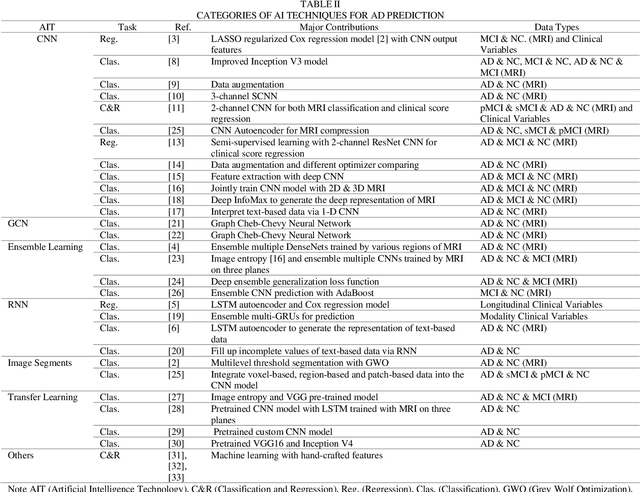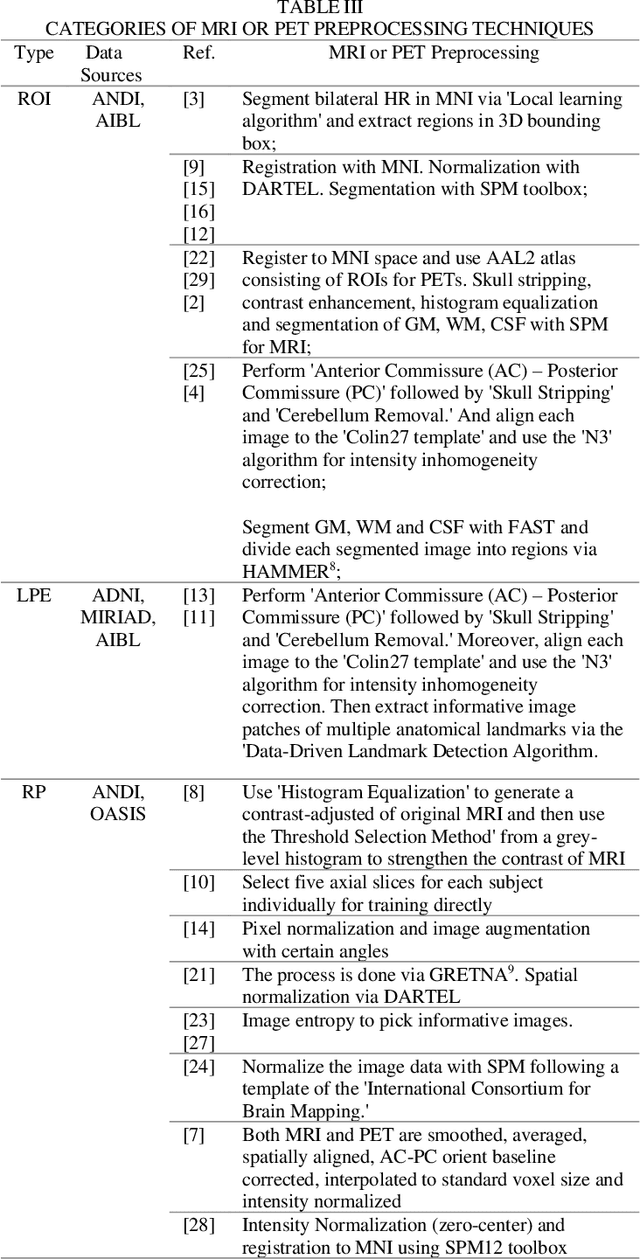A Review of Artificial Intelligence Technologies for Early Prediction of Alzheimer's Disease
Paper and Code
Dec 22, 2020


Alzheimer's Disease (AD) is a severe brain disorder, destroying memories and brain functions. AD causes chronically, progressively, and irreversibly cognitive declination and brain damages. The reliable and effective evaluation of early dementia has become essential research with medical imaging technologies and computer-aided algorithms. This trend has moved to modern Artificial Intelligence (AI) technologies motivated by deeplearning success in image classification and natural language processing. The purpose of this review is to provide an overview of the latest research involving deep-learning algorithms in evaluating the process of dementia, diagnosing the early stage of AD, and discussing an outlook for this research. This review introduces various applications of modern AI algorithms in AD diagnosis, including Convolutional Neural Network (CNN), Recurrent Neural Network (RNN), Automatic Image Segmentation, Autoencoder, Graph CNN (GCN), Ensemble Learning, and Transfer Learning. The advantages and disadvantages of the proposed methods and their performance are discussed. The conclusion section summarizes the primary contributions and medical imaging preprocessing techniques applied in the reviewed research. Finally, we discuss the limitations and future outlooks.
 Add to Chrome
Add to Chrome Add to Firefox
Add to Firefox Add to Edge
Add to Edge